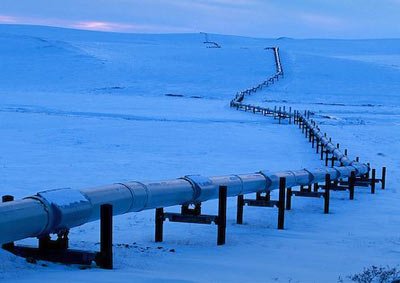AN ENERGY DEFENCE POLICY FOR EUROPE
Published by Gbaf News
Posted on April 17, 2014
5 min readLast updated: January 22, 2026

Published by Gbaf News
Posted on April 17, 2014
5 min readLast updated: January 22, 2026

With a resurgent Russia throwing its weight around militarily and commercially, unconventional energy could give European commodity traders some much-needed leverage
By Steven Ferrigno
In January 2009, households across Southeastern Europe were plunged into freezing cold.

Winter Pipeline Allegro
At the height of a long-running dispute with Ukraine over unpaid energy bills, Russia cut off natural gas flow to the country’s transit pipelines. As 80% of Europe’s gas flowed from Russia through Ukraine, the move also denied Albania, Bosnia and Herzegovina, Bulgaria, Croatia, Greece, Montenegro, Romania, Serbia and others their predominant – and in some cases only – source of heating. Many had to revert to wood burning fires to keep warm during a particularly chilling polar freeze, whilst Moscow and Kiev sparred over blame for the crisis.
Leaving aside judgements about who was most at fault, one fact remains: Europeans paid a high price for relying on a single national supplier for their prime source of energy. They still do.
History’s lessons are hard learned and recent events in Crimea remind us of Europe’s ongoing vulnerability to a Russia-dominated energy market. Despite an EU pledge to address the unreliability of Russia (and Ukraine) as suppliers, five years on Russia still supplies 30% of Europe’s oil and gas. That’s better than the 38% it supplied in 2009 but the supply chain and financial risks for derivatives traders are still extreme, especially when you look at how exposed individual markets still are:
Against that backdrop, Gazprom’s long-term contracts with Lithuania, Estonia, Hungary and Bosnia-Herzegovina all expire next year. With some diversification of supply, a new pipeline through the Baltics and interconnects between individual countries, Moscow’s hand is somewhat weaker today than in 2009. The ongoing instability in Ukraine however adds urgency to the situation. Europe must strengthen its negotiating position by further diversifying its sources of supply.
That doesn’t have to mean abandoning other policy objectives like increasing competitiveness and fighting climate change. The question is how to balance multiple goals. Shale oil and gas could provide an answer.

Winter Pipeline Construction
Consider the impact shale oil and gas had on North America in just three short years: natural gas prices have plummeted, coal has been pushed aside as an electricity source, a rejuvenated manufacturing sector is humming along on the back of low energy costs, and now abundant natural gas looks to make the continent a net exporter of fuel in the next 5-6 years.
That doesn’t mean we can sit back and wait for America to turn on the faucets however. Congress has been slow to approve export licenses for natural gas and the new LNG terminals currently under construction in the US will be serving Asian as well as European customers – and Asia pays higher prices.
Europe needs to grasp its own home-grown shale opportunity and take steps now toward greater energy independence. That will take some doing – between 2000 and 2010 we’ve sunk just 50 exploratory shale wells compared to 12,000+ in the US during the same period. The EU needs to learn from and adopt some of the US approach.
There are a number of factors holding back European shale exploration. Some are political, some are related to the structure and operational realities of our energy industry, and some are down to simple geology. Politics and green activism, however, may be the biggest hurdles to overcome if we’re going to use it as a bargaining chip in future negotiations over Russian gas and oil.
Bearing in mind that mineral rights are amongst the last communally held national resources (they revert to the state in Europe, not individual landowners), a national conversation needs to be had in each country about the potential benefits, lost inflows of billions in cash to the public purse and the overall impact of exploiting shale reserves on society – not to mention the political and diplomatic advantages of not tying ourselves to any one dominant energy supplier.
Will Russian bullying prompt a re-think in energy markets?
The tide is beginning to turn. Speaking in March at an EU-U.S. summit in Brussels, European Commission President Jose Manuel Barroso said that the growing tension with Russia over Crimea serves as a “very strong wake-up call for Europe”. UK Prime Minister David Cameron has said as much about the need to intensify shale exploration in the wake of the crisis.
Most important of all was Eni’s announcement in April that its traders would seek to re-negotiate all of its long-term natural gas contracts — the first major signal from the industry that Russian dominance of Europe’s energy supply needs to be challenged.
Shale gas has the potential to diversify Europe’s energy mix and minimise our dependence on over-dominant suppliers. Without concerted action by the EU that is supported by national governments, Russia will continue to spread turmoil in energy commodity markets.
Despite years of success across the pond the EU has dithered on shale exploration. In the face of a resurgent Russia there must now be a concerted effort by the EU and member states to start drilling wells.
Steven Ferrigno is Managing Director, EMEA for Allegro Development Corporation, www.allegrodev.com. He is based in London.
Explore more articles in the Investing category











